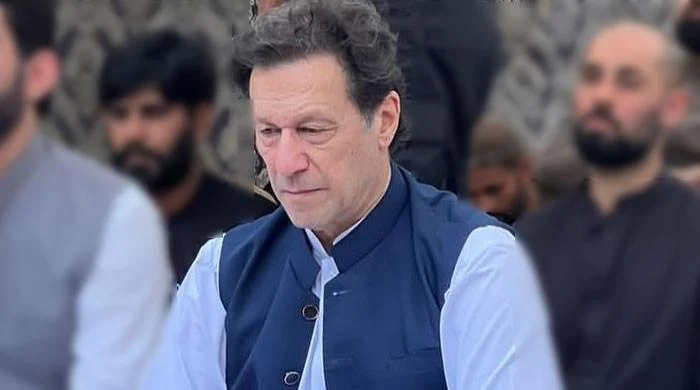Imran Khan
RAWALPINDI: Pakistan Tehreek-e-Insaf (PTI) founder and former Prime Minister Imran Khan made a significant statement on Tuesday, expressing his willingness to remain in custody while urging authorities to release other leaders from his party.
During a media interaction amidst the hearing of the £190 million reference, Imran reiterated his call for Chief Justice Qazi Faez Isa to consider PTI’s petition from May 25, urging the formation of a judicial commission to investigate the incidents of May 9.
Emphasizing the lack of inquiry into these incidents so far, Imran stressed the importance of transparency, stating that withholding information is tantamount to a crime. He lamented the alleged targeting of his political party based on events from May 9.
Imran also raised concerns regarding the February 8 elections, advocating for a thorough investigation into alleged rigging. He questioned the Election Commission of Pakistan’s (ECP) ability to conduct impartial inquiries in light of these allegations.
In a plea for justice, Imran appealed to authorities to consider releasing other PTI leaders while he remains in custody, citing the health concerns of individuals such as Dr. Yasmeen, Mehmoodul Rashid, Alia Hamza, Ijaz Chaudhry, and Umar Cheema.
Turning to national security issues, Imran referred to revelations made during a National Security Committee (NSC) meeting, particularly Asad Majeed’s identification of a potential threat.
He suggested reevaluating statements made by Donald Lu, with potential implications for further investigation, especially regarding the role of the US Embassy.
Imran questioned why Pakistan’s alleged cypher breach had not been thoroughly investigated, highlighting discrepancies in the handling of the original cypher by the Foreign Office.
Expressing frustration over his recent legal proceedings, Imran recalled warnings from media figures about his expected conviction by February 5. He advocated for live broadcasts of his court hearings.
Additionally, Imran commented on remarks made by Rana Sanaullah, criticizing what he saw as tactics typical of “political mafias.”
He stressed the importance of fair political competition, especially in Punjab, where he noted difficulties in engaging with parliamentary leaders.


